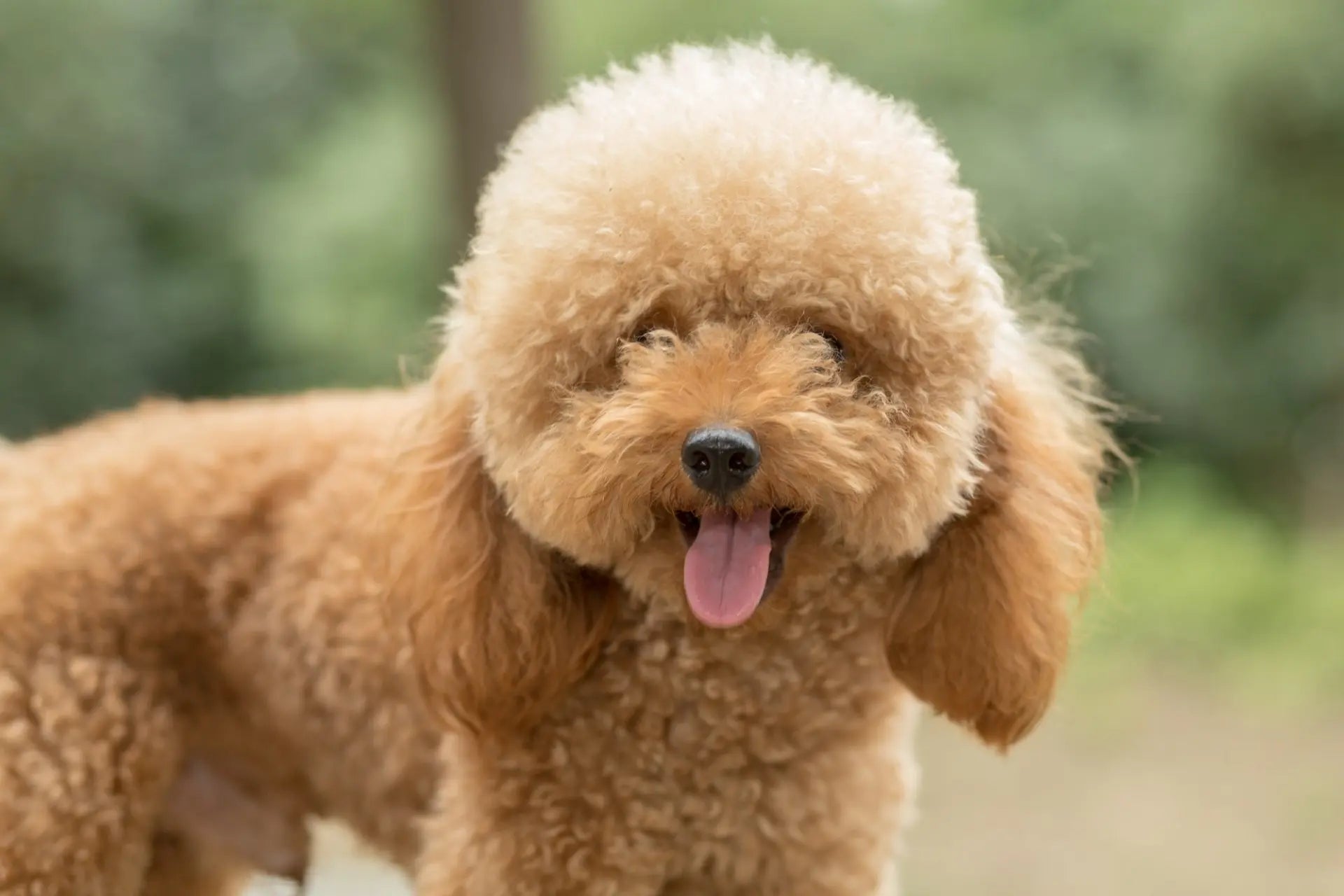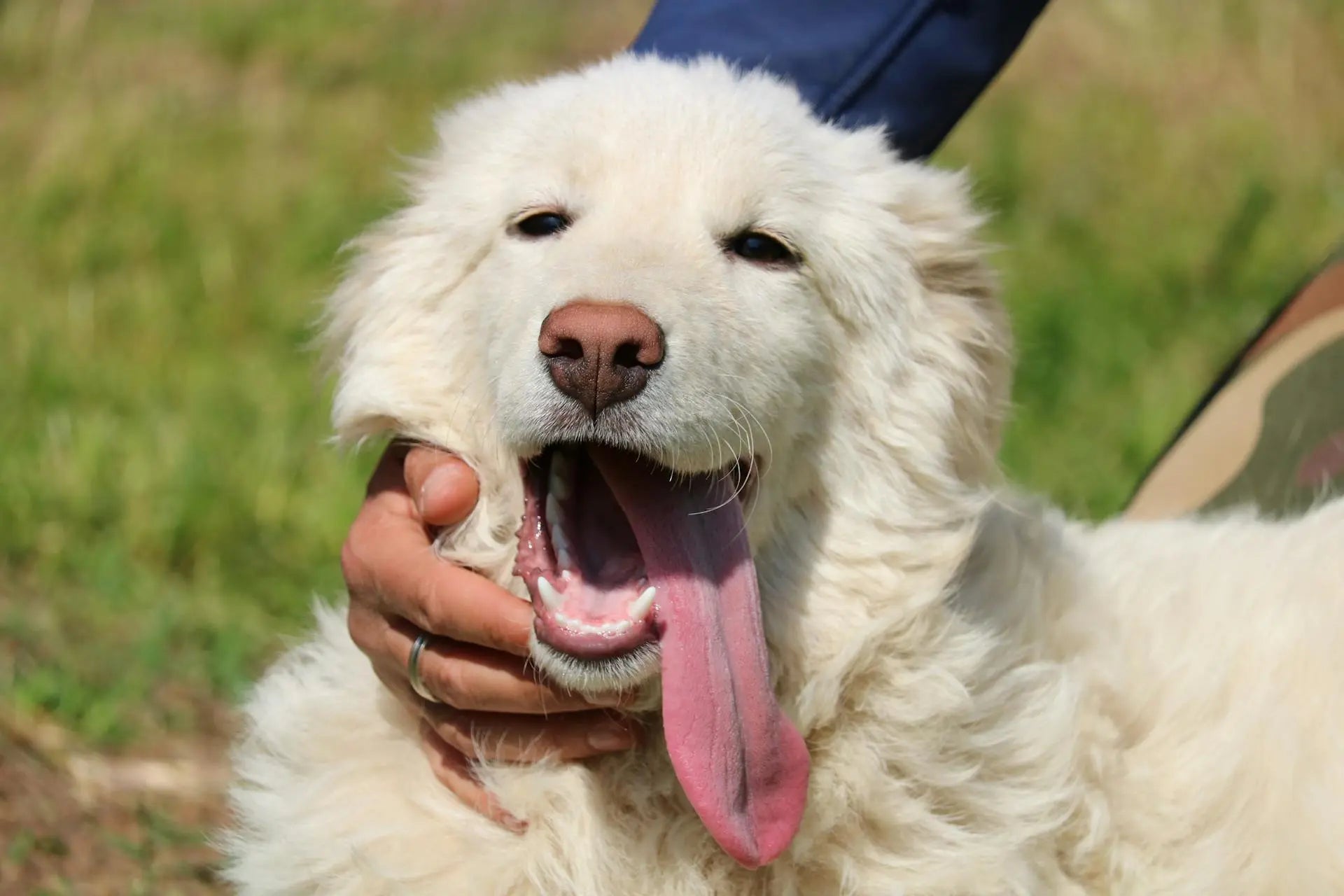
Toy Poodle Dog Breed: Care, Training & Health Guide for Dog Lovers!
Toy Poodles are one of the most popular small dog breeds, known for their intelligence, elegance, and affectionate nature. Whether you live in an apartment or a family home, a Toy Poodle can make a delightful companion when their needs are properly understood.
In this guide, we answer the most common questions about Toy Poodles to help you decide if this charming breed is the right fit for your lifestyle.
Quick Facts Overview
|
Trait |
Details |
|
Size Category |
Toy |
|
Height & Weight |
Height: Up to 25 cm; Weight: 2–4 kg |
|
Coat Type & Colours |
Curly, dense single coat; various colours including white, black, apricot, red, silver |
|
Energy Level |
High |
|
Origin |
France/Germany |
|
Grooming Needs |
High |
|
Temperament |
Intelligent, alert, affectionate, playful |
|
Trainability |
Very High |
|
Compatibility |
Great with families, singles, and seniors |
|
Lifespan |
14–18 years |
Breed Origins and History
The Poodle’s origins trace back to Germany as a water retriever, but the Toy Poodle, as we know it today, was refined in France. Bred down from Standard Poodles, the Toy variety became popular among aristocracy as companions and entertainers. Despite their luxurious appearance, Toy Poodles retain the intelligence and athleticism of their larger ancestors, making them an ideal small dog for active households.
Personality and Temperament
Toy Poodles are cheerful, loving, and quick-witted. They form strong bonds with their families and thrive on interaction. This breed is alert but friendly, often welcoming new people once they’ve been introduced. Their playful spirit keeps them young at heart well into their senior years. Toy Poodles are also known for their sensitivity—they respond best to gentle, positive training methods.
Trainability and Intelligence
One of the most intelligent breeds in the world, Toy Poodles are a dream to train. Their desire to please, paired with their mental agility, makes them excel in obedience, tricks, and agility.
-
Respond quickly to positive reinforcement like treats and praise
-
Thrive in structured learning environments
-
Learn commands and tricks exceptionally fast
-
A lightweight training harness ensures comfortable control during walks
-
Keep treats ready in a treat bag for consistent rewards
Exercise and Activity Requirements
Toy Poodles might be small, but they have bundles of energy that need daily outlets.
-
30–45 minutes of daily exercise
-
Enjoy brisk walks, indoor games, and puzzle toys
-
Love learning new tricks or participating in agility sports
-
A hands-free lead is ideal for convenient walks
-
Mental stimulation is just as important as physical activity
Physical Characteristics
The Toy Poodle is compact yet elegant, with a fine bone structure and a proud, lively carriage.
-
Height: Up to 25 cm
-
Weight: 2–4 kg
-
Coat: Dense, curly single-layer coat
-
Colours: White, black, apricot, red, silver, blue, cream, and more
-
Best suited for small dog gear
Living Environment Suitability
Toy Poodles are highly adaptable and thrive in many different environments.
-
Perfect for apartment living, small homes, or large houses
-
Need companionship and mental engagement daily
-
Sensitive to loneliness—prefer homes where someone is around for most of the day
-
A soft orthopaedic dog bed offers them a cosy resting place
-
Secure them safely during travel with a dog car harness
Grooming and Maintenance
Toy Poodles require regular grooming to keep their coat healthy and tangle-free.
-
Professional grooming recommended every 4–6 weeks
-
Brush at least 2–3 times per week to prevent matting
-
Regular ear cleaning is essential to prevent infections
-
Keep nails trimmed and coat clean
-
Use a gentle soft collar to avoid irritating their fine coat
Common Health Issues
Toy Poodles are generally healthy but are prone to a few breed-specific concerns.
-
Common issues: luxating patella, progressive retinal atrophy (PRA), dental issues
-
Dental care is crucial due to their small mouths
-
Joint health support with a quality orthopaedic dog bed is beneficial
-
Regular vet check-ups and a healthy diet help extend lifespan
Diet and Feeding Guidelines
Nutrition is important to keep your Toy Poodle energetic and thriving.
-
Puppies: Feed 3–4 times daily in small, measured amounts
-
Adults: Feed twice a day, adjusting portions based on activity levels
-
High-quality, small-breed formulas recommended
-
Always provide access to clean, fresh water
-
Portable food and water bowls are perfect for outings
Compatibility with People and Other Pets
Toy Poodles are incredibly social and fit well into many types of homes.
-
Great with children, seniors, and other pets
-
Thrive in busy, loving households
-
Early socialisation makes them more confident around other dogs
-
Walk multiple pets easily with a coupler lead
Behavioural Issues and Management
Without proper stimulation and boundaries, Toy Poodles can develop small-dog behavioural challenges.
-
May become vocal if left alone too often
-
Need daily mental stimulation to avoid boredom-based mischief
-
A no-pull harness ensures polite leash manners
-
Rotate interactive toys to keep their minds busy
Essential Gear for Toy Poodles
Walking and Training
Comfort and Rest
Fun and Enrichment
FAQs: Toy Poodle
1. Are Toy Poodles good house dogs?
Yes, Toy Poodles make excellent house dogs. They are intelligent, affectionate, and adapt well to smaller living spaces like apartments or suburban homes. As long as they receive daily exercise and mental stimulation, they are happy and well-behaved indoors.
2. Is a Toy Poodle high maintenance?
Toy Poodles do require a fair amount of care. Their curly coat needs regular grooming, including brushing a few times a week and professional clipping every six to eight weeks. They are also very intelligent and need consistent mental stimulation to stay happy.
3. Are Toy Poodles okay to be left alone?
Toy Poodles can tolerate being alone for short periods, but they are companion dogs at heart. Being left alone for too long can lead to separation anxiety. If you are out often, it is important to provide them with dog toys or arrange for someone to check in.
4. Do Toy Poodles bark a lot?
Toy Poodles are alert and tend to bark when they sense something unusual. While they are not constant barkers by nature, without proper training and stimulation, they can become noisy. Early training helps keep their barking under control.
5. Do Toy Poodles shed?
Toy Poodles are considered low-shedding dogs. Their curly coat traps loose hair, which reduces shedding around the house. However, regular grooming is important to prevent matting and keep their coat in good condition.
6. What is the lifespan of a Toy Poodle?
Toy Poodles typically live between 14 and 18 years. They are one of the longer-lived dog breeds, thanks to their small size and generally good health when properly cared for.
7. What are the disadvantages of a Toy Poodle?
While Toy Poodles have many wonderful traits, they can be prone to separation anxiety, require regular grooming, and may be sensitive to harsh training methods. Their intelligence means they need consistent mental engagement to avoid boredom-related behaviours.
8. Are Toy Poodles clingy?
Toy Poodles are known for forming very strong bonds with their owners. They can be quite clingy, often following their favourite person around the house. While this is endearing to many, it can lead to separation anxiety if not managed early.
9. What not to do with a Toy Poodle?
Avoid leaving a Toy Poodle alone for long hours, using harsh training methods, or neglecting their grooming needs. They thrive with gentle, positive reinforcement and regular mental and physical activities. Also, be mindful of their delicate size when handling them.
10. What age do Toy Poodles calm down?
Most Toy Poodles start to settle down between 18 months and 2 years of age. However, they generally retain a playful and lively spirit well into their adult years. Regular exercise and mental stimulation help manage their energy in a positive way.
Final Thoughts
Toy Poodles offer a wonderful blend of intelligence, loyalty, and playfulness, making them ideal companions for many households. While they do require regular grooming and mental engagement, the love and joy they bring to a home is unmatched.
If you are considering welcoming a Toy Poodle into your life, understanding their needs and characteristics will help ensure a happy and lasting bond. Always remember that each Toy Poodle has its own personality, and with the right care and attention, they will thrive as a loving member of your family.
Looking for the best gear for your Toy Poodle?
Visit EzyDog for premium harnesses, dog beds, and accessories designed for stylish, smart small dogs like the Toy Poodle.




Leave a comment
This site is protected by hCaptcha and the hCaptcha Privacy Policy and Terms of Service apply.